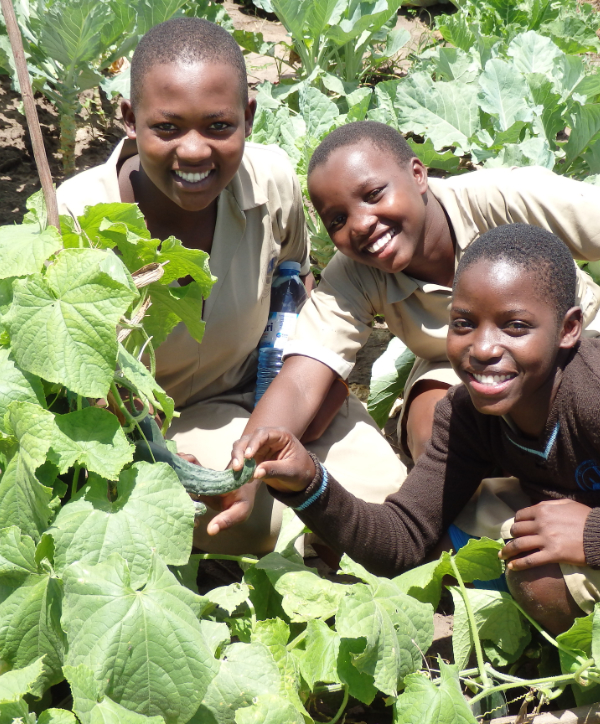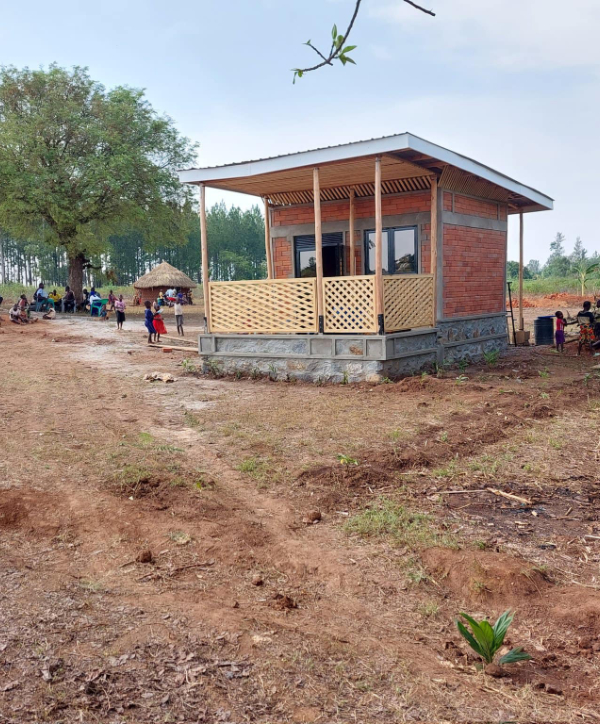Projects
What Have We Achieved?
Since 2011 we have successfully funded, built and supported the running of two community primary schools and three vocational skills centres in Budaka and Bukedea Districts, Eastern Uganda, which supports over 2,000 young people and community members each year. The projects focus on providing access to quality education, improving health, sanitation and reducing poverty, whilst increasing individual/community sustainability.

BUMBA FOUNDATION ACADEMY COMMUNITY SCHOOL – MUGITI
In December 2011 we began to develop our first community school with the construction of a 4 classroom building and administration offices at Mugiti Sub- County in Budaka District in Eastern Uganda. The new building was completed in October 2012 and the school opened in January 2013 for the new academic term. In 2015 an additional 3 classroom building was constructed and followed in 2017 with 2 more classrooms which is open plan and also provides a hall for the school and wider community. By 2018 the school was offering all 7 primary classes and 2 nursery classes with a capacity of 350. In 2019 an accommodation building was constructed for both students and teachers. With the addition of a kitchen, toilets, solar power and a water well, the school was fully completed in 2019.
Following the success of the first community school in Mugiti, we began the development of our second community school in Iki Iki sub county in Budaka District in 2013. The school began with the construction of a 4 classroom building and administration offices and opened in 2014. This was followed by the construction of a 3 classroom building in 2015 and then a school hall/ nursery classroom building in 2017. This ensured all primary and nursery school classes were being offered by 2018. In 2019 we constructed an additional school accommodation building for students and teachers, which was opened in 2020.
BUMBA FOUNDATION ACADEMY COMMUNITY SCHOOL – IKI IKI
Following the success of the first community school in Mugiti, we began the development of our second community school in Iki Iki sub county in Budaka District in 2013. The school began with the construction of a 4 classroom building and administration offices and opened in 2014. This was followed by the construction of a 3 classroom building in 2015 and then a school hall/ nursery classroom building in 2017. This ensured all primary and nursery school classes were being offered by 2018. In 2019 we constructed an additional school accommodation building for students and teachers, which was opened in 2020.


BUMBA FOUNDATION ACADEMY COMMUNITY SCHOOL – IKI IKI
Following the success of the first community school in Mugiti, we began the development of our second community school in Iki Iki sub county in Budaka District in 2013. The school began with the construction of a 4 classroom building and administration offices and opened in 2014. This was followed by the construction of a 3 classroom building in 2015 and then a school hall/ nursery classroom building in 2017. This ensured all primary and nursery school classes were being offered by 2018. In 2019 we constructed an additional school accommodation building for students and teachers, which was opened in 2020.

AGRICULTURAL VOCATIONAL SKILLS CENTRE – MUGITI
In 2017 we began the development of a small garden at our community school in Mugiti and following the feedback from the community and their need for agricultural education, we decided to expand the project and began the planning for a vocational training centre. Over the next few years we created demonstration gardens with innovative irrigation systems with solar water pumps, water towers and drip lines. We created a micro climate by planting trees, tropical plants and grass based raised beds. The demonstration gardens were created to provide a practical learning environment which uses improved innovations, irrigation systems and sustainability farming methods which support individual and community knowledge and skills sharing.
By 2021, we had constructed the gardener’s cottage, providing basic accommodation for the gardener, storage, an office space for the project and a training space for the vocational training/ community education workshops. This was followed by the implementation of peer education projects, apprenticeship programmes and the roll out of community education workshops.
TAILORING VOCATIONAL SKILLS CENTRE – IKI IKI
The project involved the development of the first vocational training centre at the Iki Iki community school in Budaka District. The centre educates the young people attending/not attending school in tailoring and craft making and provides the skills to innovate and run a small micro business. The centre opened in 2015 and supports young people aged 16-25, who have often dropped out of school due to poverty or because they had children at a young age. With the lack of education and employment, poverty is very real and this centre provides the young people with the skills and the hope that they can climb out of poverty.


TAILORING VOCATIONAL SKILLS CENTRE – IKI IKI
The project involved the development of the first vocational training centre at the Iki Iki community school in Budaka District. The centre educates the young people attending/not attending school in tailoring and craft making and provides the skills to innovate and run a small micro business. The centre opened in 2015 and supports young people aged 16-25, who have often dropped out of school due to poverty or because they had children at a young age. With the lack of education and employment, poverty is very real and this centre provides the young people with the skills and the hope that they can climb out of poverty.

AGRICULTURAL VOCATIONAL SKILLS CENTRE – KACHURU
Following the success of our first agricultural project, by assessing the local needs, we began to co-design a second agricultural training centre with the community in Kachuru Village. The project began in December 2022 with the development of a demonstration garden, the construction a production water well, solar powered water pump, water towers, irrigation lines and a drip system used to support the growing of crops and the creation of a micro-climate through the planting of trees, tropical plants, grasses and rain water collection. The new demonstration garden is being used to train young people and communities, and will support them to implement new methods of farming, use of irrigation, improvements to crop yields/ income and practical methods of combating climate change. Through a network of community groups, we will expand the programme with training workshops and through the peer education methodology, we will increase the impact and sustainability.
